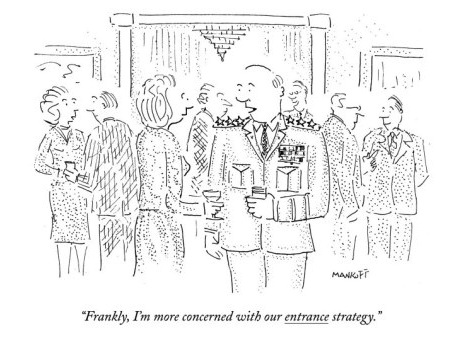
It’s staggering to think that the man who stood in front of a drab yellow backdrop earlier this month, still defending his decision to join the US invasion of Iraq, was the same man who once charmed the British electorate with a staggering electoral haul of 418 seats in the House of Commons that once reduced the Conservative Party to a rump movement in British politics.![]()
Nineteen years ago, Blair bestrode British politics with a mandate that not even Winston Churchill or Margaret Thatcher ever claimed. To this day, the 418 seats that Blair won as the head of a re-energized, re-focused, and rechristened ‘New’ Labour in 1997 is the most sweeping victory that any prime minister has claimed since the 1930s. To put that into perspective, if Conservative prime minister Theresa May called a snap election today, polls show that Labour, even under Jeremy Corbyn’s leadership, would do better than the Tories in 1997, when Labour swept to power on a 12.5% national margin of victory.
Blair pulled his party out from the disastrous shadow of the 1970s, when Labour’s Britain was falling far behind continental Europe, infamously amending the Labour Party constitution’s ‘clause IV’ that committed the party to socialism and nationalization. There’s no dispute that Blair approached ‘New Labour’ with enthusiastic acceptance for much of Thatcherism and free markets. Of course, it’s fair to say that 18 consecutive years of Conservative government and dysfunctional divides in the later years of John Major’s cabinet left British voters willing to take a chance on anything. It’s not incredible to surmise that a lesser political talent — like Neil Kinnock, Labour’s leader from 1983 to 1992, or the late John Smith, whose 1994 death paved the way for Blair’s ascension — would have won the 1997 election with ease.
But with the release of the Chilcot report’s damning verdict about the leadup to the Iraq invasion, just six words from a pre-invasion memo in 2002 to then-US president George W. Bush will forever define Blair’s legacy:
I will be with you, whatever.
Six words. But they contain everything explaining how Blair went in two decades’ time from electoral behemoth to politically radioactive. The Chilcot Report, commissioned in 2009 by Blair’s successor, Gordon Brown, found that Saddam Hussein in 2002 and 2003 posed no imminent threat to the United States or to the United Kingdom, that both American and British leaders embellished intelligence suggesting the threat of Iraqi weapons of mass destruction and that post-invasion planning by both US and UK officials was horrifically inadequate. In short, the worst British foreign policy disaster since the Suez crisis in 1956 and, perhaps, even worse than that.
Just as David Cameron’s legacy will now begin and end with Brexit, Blair’s legacy will forever begin and end with Iraq.
Continue reading Blair, once unstoppable in British politics, reviled as worst postwar PM

